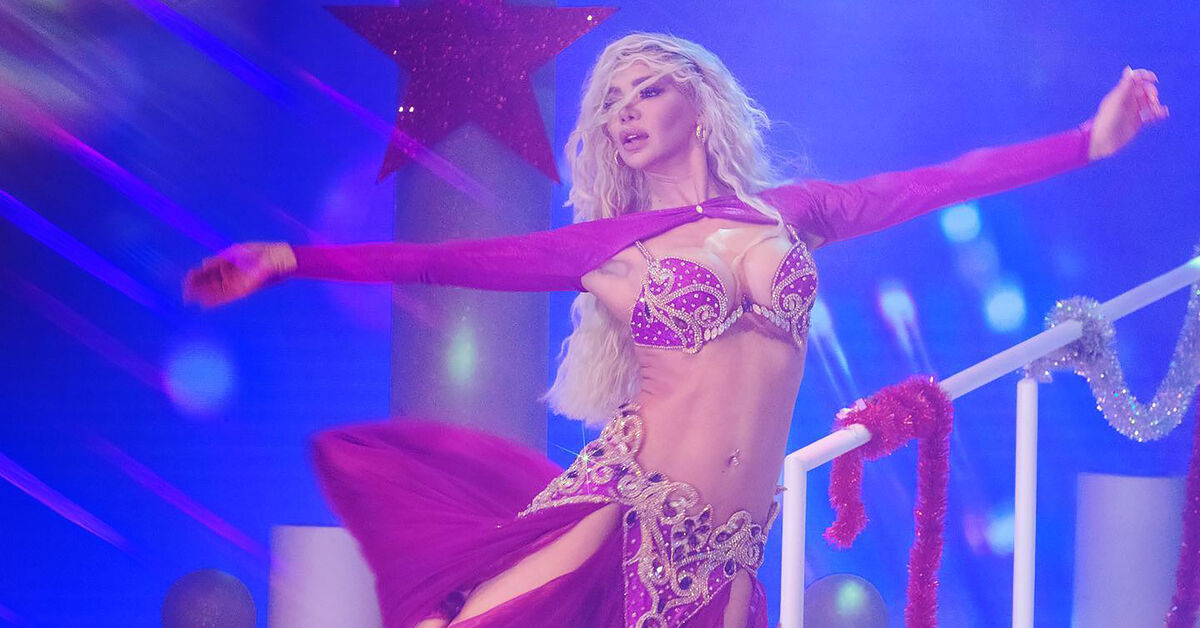As the New Year approaches, Turkey’s globally acclaimed belly-dancing queen Didem Kinali has the blues. “I miss being on television so much. If need be, I would perform for free. If need be, I would cover every exposed part of my body. I wish to engage in my art,” she declared at a news conference this week.
Turkey’s national channels traditionally air colorful entertainment shows on New Year’s Eve, and belly dancers have long been the highlight for millions of Turkish families who celebrate the event at home.
That was until 2014 when the Radio and Television Supreme Council (RTUK), the national broadcasting watchdog, began implementing an effective ban on belly dancers by applying pressure on all-too pliant media magnates to drop them. “It’s because of RTUK. For the past seven or eight years, belly dancers have been barred from the screen, particularly on the New Year,” Kinali told Al-Monitor in a rushed telephone call.
“Didem uses her body like an instrument; she is an extremely talented dancer and feels she isn’t appreciated anymore in Turkey. It’s deeply saddening to her,” a close associate seeking anonymity told Al-Monitor. Kinali continues to perform at private events such as weddings and corporate parties, the associate said. “She is the only belly-dancing star in Turkey today.” Her international engagements have included performing at pop star Madonna’s 56th birthday party in Ibiza.
RTUK and the state-run Religious Affairs Directorate, the Diyanet, have become the leading enforcers of Turkish President Recep Tayyip Erdogan’s conservative Islamic world view. Early signs of the creeping prudery emerged when the late “Huysuz Virjin” (Grumpy Virgin), a much-beloved cross-dressing entertainer, revealed in 2007 that he had been asked by private broadcaster Star TV to stop appearing on screen in drag.
In 2012, Erdogan scolded the producers of “The Magnificent Century” — the world-famous Turkish television series dramatizing the life of Suleiman the Magnificent — for showing too much imperial cleavage. Soon after, Suleiman’s favorite wife, Hurrem, was seen performing Muslim prayers on Show TV, which owned the rights to the miniseries.
In February, another private broadcaster, Haberturk, fired a female sports announcer for posting a video of herself belly dancing in her kitchen on New Year’s Eve.
Okan Demiralp, the pro-secular, main opposition Republican People’s Party representative on RTUK’s board, said there was no need for despair. “This government is on its way out. They can do whatever they like, censor as much as they want. Hardly anyone, the younger generation in particular, watches these discredited TV channels anyway,” Demiralp told Al-Monitor. “Sunnier days are coming soon,” he insisted.
The opposition is convinced that the current economic crisis, which many blame on Erdogan, will catapult them to power in parliamentary and presidential elections scheduled to take place in 2023.
Emboldened perhaps by Erdogan’s steadily slipping poll numbers, or more likely by their tanking ratings, Kanal D featured a group of little-known belly dancers gyrating enthusiastically on its New Year’s Eve programming in 2019 — without the bellies. Their outfits obscured them.
Whether others summon the courage this year to feature the “oryantaller” — as belly dancers are known — remains to be seen. Either way, there’s a lot of hypocrisy going around, said Jenny White, an American anthropologist and author of “Islamist Mobilization in Turkey.” White spent years in Turkey studying Erdogan’s pious constituents.
“Hypocrisy is by definition part of political life. The relation between sexuality and conservatism in Turkey, however, is more complex. Scantily clad belly dancers sometimes were even invited to perform at conservative Anatolian village weddings,” White observed in emailed comments to Al-Monitor.
These used to be mixed gender affairs until about 30 years ago when it became the norm to separate men and women at social events as a result of politically motivated proselytizing that insisted “real” Islam — a culturally stripped-down version — didn’t mix with the more open and varied “folk” traditions, White explained. This happened across the Muslim world, not just in Turkey.
“As in the old days, the men — if they can afford it — would be happy to see a belly dancer’s belly but would still perform their Puritan piety for their political bedfellows who are always watching to see who is drinking water and who drinks wine,” she said.
“It’s a marker of political belonging, not a moral state of the soul. They’ve now added a piece of cloth across the midriff to protect the conservative gaze, but note that they still watch the belly dancer,” White added.
Source:Al-Monitor
***Show us some LOVE by sharing it!***



